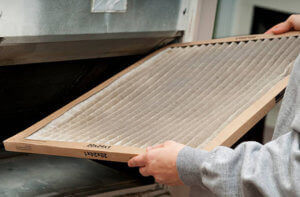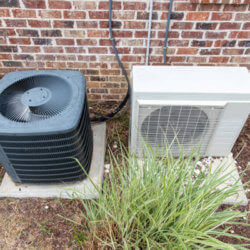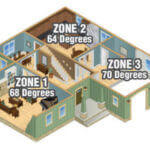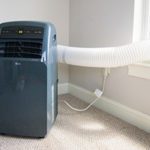Summer and spring are high allergy seasons, with so much pollen floating around during this time. But allergy symptoms can show up even during other times, especially if you have pets at home or keep your doors and windows open a lot. Mild allergy symptoms can be very uncomfortable to live with. But if these allergy symptoms become very severe, they may increase the risk of anaphylaxis or asthma. Immediate changes need to be made around the house to reduce these allergy symptoms.

So, if you are wondering how to improve allergy symptoms, you have come to the right place. In this article, we offer three tips that can help you improve allergy symptoms at home. Read on to learn more.
To learn more about how to reduce allergy symptoms in your home and find out how your HVAC system can be part of this, contact the heating and air conditioning experts at Galmiche & Sons today.
Improving Allergy Symptoms in 3 Easy Steps
1. Clean Your House Regularly
Regular dusting, vacuuming, and wiping are a must if you are sensitive to allergies. Cleaning should not happen just in high-use areas, such as hallways or high-touch areas such as table surfaces. You should also clean behind and underneath furniture, in the corners of the room, on the window panes, and in other areas that aren’t as visible, since dust accumulates there.
Places closest to the doors and windows should get a thorough cleaning to remove any outdoor allergies and pollen. If you have ceiling fans, wipe the wings since debris can settle there. Wash your walls regularly and clear out any mold in the bathroom and kitchen.
If you have pets, groom them every few days to prevent dust from matting into their fur. Consider hiring help who can come in regularly to clean your home, if cleaning frequently is not possible.
It also helps to use two different pairs of footwear – one for inside the house and another for outside the house (even if it is just to the garden or the balcony) – to limit how much dust, dirt, and pollen enters your home.
2. Get Your AC Cleaned and Serviced Regularly
A dirty or faulty AC can increase pollutants in the air, resulting in your allergy symptoms worsening. You should contact a qualified HVAC professional to help you with the following services:
- Change clogged-up air filters: Replace old and debris-filled AC air filters with clean ones. That way your AC will not release dirt particles along with the air.
- Install an air purifier or air scrubbing device in the AC: Air purifiers and air scrubbing devices cycle the air multiple times to remove various types of dust and debris, filtering out allergens during each round. This will ensure you receive very clean air. Your AC system can be upgraded by installing an air purifier or an air scrubbing device.
- Maintain the correct humidity level in the house to stop mold formation: High humidity can result in the formation of mold on the walls, especially in the bathroom and kitchen. If you live in a wet or humid area, the high humidity exacerbates the mold problem. Sneezing, coughing, irritability of the eyes and asthma are common when the humidity is too high. High humidity aside, there are issues with low humidity too. If your house is not humid enough, it reduces water vapor around the house and even dries up your skin. The low humidity can result in flaky or scaly skin and cause sinus trouble too. Ideally, your indoor humidity level should be above 30% and under 60%.
- Get the ductwork cleaned to prevent debris build-up: Just as with the air filter, your HVAC ductwork can also increase allergy symptoms. Over time, the ductwork of your centralized unit can clog up with debris, which may even spread out into the air. Getting the ductwork cleaned and repaired to prevent leaks is crucial.
At Galmiche & Sons, we are reputed HVAC professionals who know how to improve allergy symptoms with AC repairs and servicing. Contact us today if you wish to get your AC cleaned and rid your house of allergens.
3. Use Simple Home Remedies to Alleviate Allergy Symptoms

Finally, the third thing you can do to improve your allergy symptoms is to employ simple home remedies. For example, eating probiotics has been shown to reduce the severity of allergic rhinitis. Consuming fruits like pineapple and papaya which contain the enzyme Bromelain can reduce the inflammation that occurs due to allergies and improve your breathing. A bit of stinging nettle or Spirulina in your diet acts as a great anti-allergen. Vitamin C supplements and fruits rich in Vitamin C can reduce histamine levels, reducing allergy symptoms. Essential oils such as Frankincense, Eucalyptus, and Peppermint have properties that also alleviate allergy symptoms.
Consult your physician for the best home remedy for you and use it to alleviate the severity of your allergy.
Learn More About How to Improve Allergy Symptoms with Your HVAC
If you want to learn more about how you can improve allergy symptoms in your home, especially using your HVAC system, contact the heating and air conditioning experts at Galmiche & Sons in St. Louis. Serving homeowners in the local area since 1950, we look forward to helping you keep your family happy, healthy, and comfortable at home.












